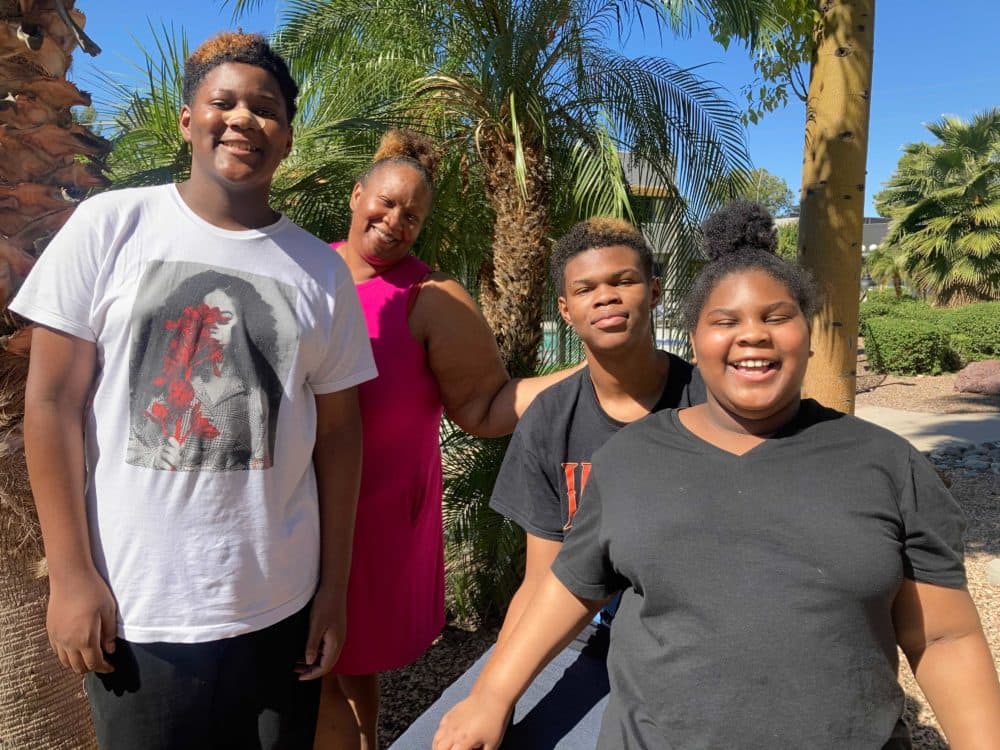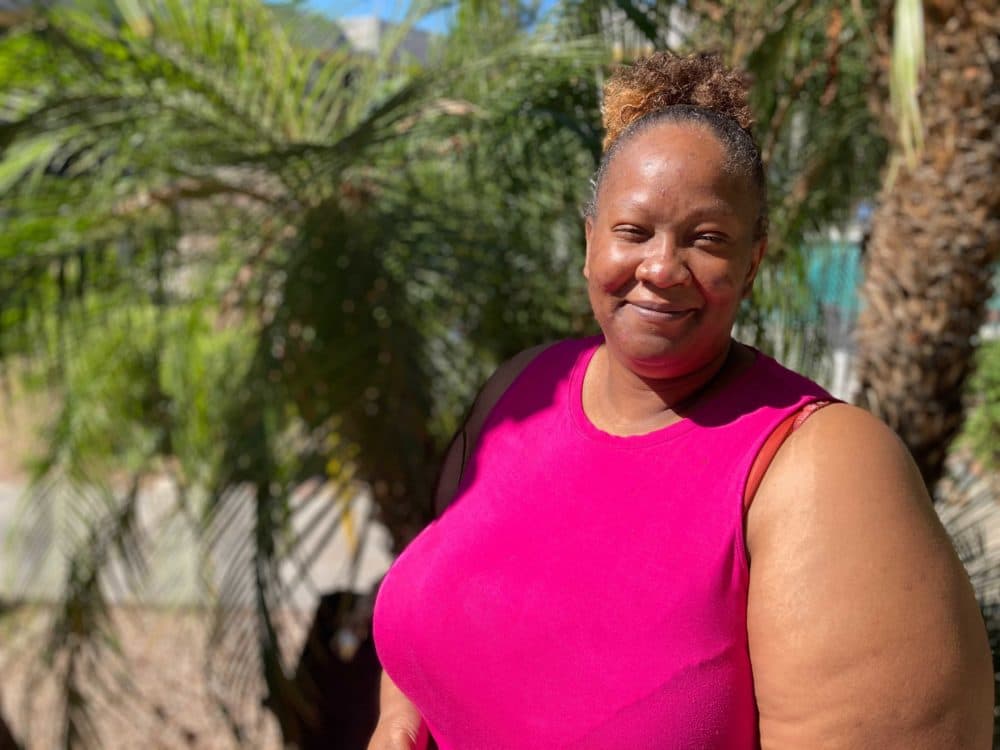Advertisement
How COVID-19 and an eviction nearly unraveled one family

A federal rule designed to keep renters in their homes during the pandemic expired at the end of July, which means landlords finally had a way to legally evict tenants who hadn't paid rent in months.
But evictions never really stopped, even while the ban was in place. Some judges just ignored the order, says Sarah Hassmer, who does housing policy work for the National Women's Law Center.
“A lot of tenants don't have legal representation when they show up to eviction court. And eviction court is so fast-paced,” she says. “Meanwhile, landlords often have that representation, and so there's just a real imbalance of power between landlords, judges and tenants.”
One of those tenants is Shuntera Brown, a single mother of three who was evicted from her apartment in Phoenix, Arizona, on July 26 — just days before the ban expired.
For the next 80 days, Brown, who worked in a warehouse, moved her kids from Airbnbs to hotel rooms trying to keep her family off the streets. The experience nearly unraveled her life.
But last week, in the middle of October, she finally got a break: A leasing agent handed her keys to a new place.
“It's been a journey,” Brown says upon receiving her keys. "The stress and relief off my chest right now, it’s crazy.”

Brown leaves the rental office to go get her kids in the parking lot. She grabs a few bags from the trunk of her car and then leads them to the front door of their new apartment.
The apartment has carpet, a walk-in closet and new appliances. It's modest, but it's home.
For Brown’s 9-year-old daughter Maliyah, settling into a new place means she can finally go back to school and make new friends. Maliyah says it’s been a hard few months for her and her twin older brothers, 16-year-olds Malaun and Mekhi.
All three kids have been remote learning since the pandemic started — and they're sick of it. They haven't been able to go to a classroom because the family's been moving around so much.
Malaun says it hasn’t been the family’s year, but they’re getting through it. He feels good about the new apartment and can’t wait to settle in with all his stuff.
Advertisement
“At least we got something. At least we don't have to be in a room, we got our own,” he says. “So I mean, I can't complain.”
Though who would blame him if he did? Malaun’s year was upended with a diagnosis.
It started when Brown and her kids tested positive for COVID-19.
“From then, it was basically an ongoing struggle for me to keep up with the bills,” Brown says, “because I actually was sick out of work for like 20 plus days.”
She used up her vacation days while she was sick and didn’t get paid for some days toward the end of her illness. Brown says she struggled to pay her rent from January to March and then her landlord took her to court.
On July 20, Brown found out she needed to leave by July 26. But the eviction moratorium didn't expire until the end of July.
“I actually begged the judge to give me until the end of [the moratorium], but he still signed the writ to get me out of there,” she says, “and threw it on my credit line almost immediately.”
Rental agencies told Brown they couldn’t rent an apartment to her because of her eviction — making the family homeless.
Brown’s debts were building prior to the pandemic, but once COVID-19 hit, it sent her into a “spiral,” she says.
Brown says she could have rented cheaper hotels for the family to stay in, but she needed to be sure her kids were in a safe place while she worked 60 hours per week. She would tell her supervisors she needed to keep her phone with her on the floor because she felt nervous about their safety.
And she was also concerned about academics. Before distance learning, Maliyah was a straight-A student.
“I'm basically asking them to be adults because when kids are in school, they have an adult teaching them,” she says. “So them being homeschooled in a hotel, with me at work? Come on.”
Brown was able to get back on her feet thanks to help from others. After the eviction, she paid for the hotel rooms with a GoFundMe campaign.
But to get into this new apartment, she needed more than that. She needed the government to pay her previous landlord the $4,800 she still owed in back rent. Getting that money to clear her record was no easy task.
“Congress passed $46.5 billion dollars in emergency rental assistance,” Hassmer of the Women’s National Law Center says, “but unfortunately states and localities didn't have the infrastructure to really get these funds out to tenants and landlords who need it quickly.”
Hassmer helped Brown navigate the system in Phoenix all the way from her home office in Maryland.
Even before Brown’s eviction, the single mother made dozens of calls to the city trying to get relief, Hassmer says. Hassmer also tried herself but couldn’t get through. She and Brown waited for nearly three months to get the money for the back rent.
Many cities across the country were unprepared for the demand when Congress left it up to local governments to distribute the money. A spokesperson for the city of Phoenix said it's helped nearly 5,500 families and paid out about $42 million in rental relief. That's 90% of the federal money the city has gotten since March.
It may have taken a while but Brown finally got her check, which means her back rent has been paid and the kids are out of the hotel. In this new empty apartment still full of potential, you can almost feel the relief.
Brown can’t wait to get a bed in the place so she can catch up on sleep.
“I don't know how I did it,” she says. “I just can say there's a whole lot of inconsiderate people in this world when it comes to people that struggle. Everybody thinks it's that person’s fault that they're struggling.”
In reality, single parents like Brown carry a huge weight on their shoulders.
“If I don't make it, they don't have it,” she says. “Period.”
Brown feels proud to have a new place for her family to stay, but she says she often apologizes to her kids.
“I felt like I should have been more established,” she says. “I know I can't do nothing about it, but I want them to be established so they won't have to go through what I'm going through right now.”
Truth is, Brown still can't rest. The rent for her new apartment is $1,500 a month. She's looking for a new job and the bills keep coming.
Peter O'Dowd produced and edited this interview for broadcast with Chris Ballman. Allison Hagan adapted it for the web.
This segment aired on October 22, 2021.

